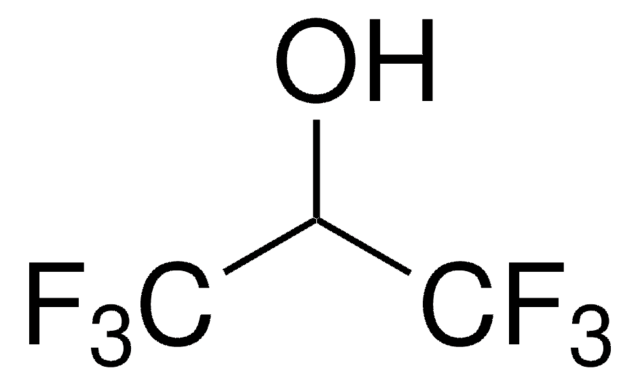F9755
Fluorinert™ FC-40
immiscible fluorocarbon oil
Synonym(s):
immiscible fluorocarbon oil
About This Item
Recommended Products
form
liquid
density
1.85 g/mL at 25 °C (lit.)
application(s)
hematology
histology
storage temp.
room temp
SMILES string
FC(F)(F)C(F)(F)C(F)(F)C(F)(F)C(F)(F)C(F)(F)C(F)(F)C(F)(F)C(F)(F)C(F)(F)F
InChI
1S/C10F22/c11-1(12,3(15,16)5(19,20)7(23,24)9(27,28)29)2(13,14)4(17,18)6(21,22)8(25,26)10(30,31)32
InChI key
BPHQIXJDBIHMLT-UHFFFAOYSA-N
General description
Application
Packaging
Other Notes
Legal Information
Storage Class
10 - Combustible liquids
wgk_germany
WGK 2
flash_point_f
Not applicable
flash_point_c
Not applicable
ppe
Eyeshields, Gloves, type ABEK (EN14387) respirator filter
Choose from one of the most recent versions:
Already Own This Product?
Find documentation for the products that you have recently purchased in the Document Library.
Customers Also Viewed
Our team of scientists has experience in all areas of research including Life Science, Material Science, Chemical Synthesis, Chromatography, Analytical and many others.
Contact Technical Service











